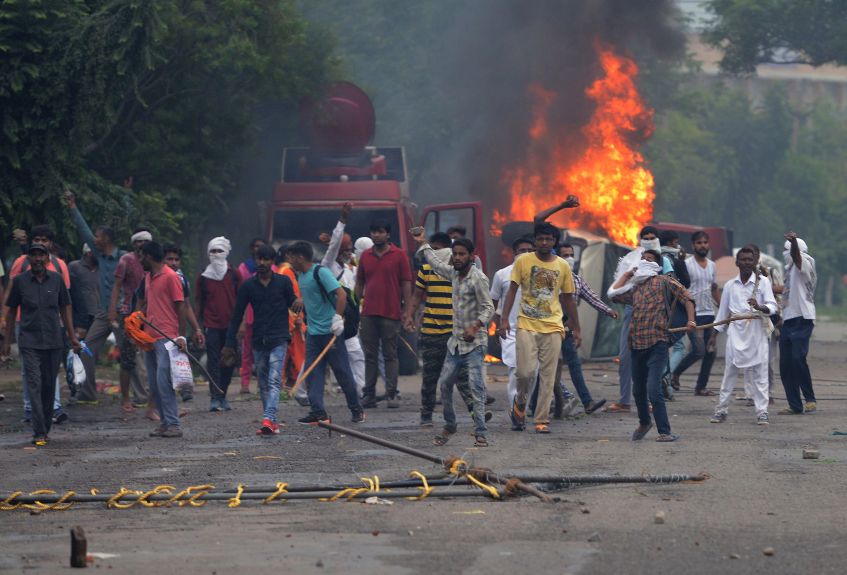The former Chief Justice of India Dipak Misra attended the proceedings of the SC for the last time on October 1st. CJI Misra headed a three member bench which included Justice A M Khanwilkar and Justice D Y Chandrachud. The three member bench issued comprehensive guidelines to control vandalism by the mobs who are protesting in the case of Kodungallur Film Society vs Union of India. The Public Interest Litigation filed by Kodungallur Film Society sought framing of guidelines against the large scale acts of violence and hooliganism being carried out by fundamental outfits under the garb of public protests. The Supreme Court bench took cue from the guidelines issued to control mob lynching in Tehseen Poonawalla case to state the losses due to any damage to public property which occurred during the so called protests would be recovered from the organisations or persons who had called for the protests in the first place.
Justice A M Khanwilkar authored the judgement for the three member bench which stated, “Nobody has the right to become a self-appointed guardian of the law and forcibly administer his or her own interpretation of the law on others, especially not with violent means. Mob violence runs against the very core of our established legal principles since it signals chaos and lawlessness and the State has a duty to protect its citizens against the illegal and reprehensible acts of such groups.” The judgement also mentioned that any person who is found to be in possession of prohibited weapons during the course of such protests or demonstrations will be presumed to have intent to indulge in violence and will be treated as such in the courtrooms.
The judgement by the SC has cleared that if a call to violence made by a spokesperson, or through the social media accounts of any individual, group or organization results in damage to property then appropriate action will be taken against such person/organization. The appropriate action will include remedial measures in order to make good the losses incurred during the staging of such protests directly or indirectly. The leaders of the organization/group which have called for the protests should also present themselves for questioning in a police station in case of destruction of property having taken place during the course of the protests. Even an individual arrested for charges of violence during protests or demonstrations can be granted bail only when he deposits the quantified loss caused due to his acts of violence. In case of more than one person involved in destruction, the court can decided the tentative sum of money which needs to be deposited for granting bail.
This is a welcome judgement coming from the SC which will put an end to the mindless violence which is carried out by opposition parties and the cabal to disturb law and order situation in the country. Public protests and demonstrations are largely turning out to be sponsored and planned acts of disrupting the daily life of India and its common citizens. The SC also noted that such acts of violence are aimed towards suppressing the voice of the other party which is dissenting with the view of the former, the judgement said, “In addition to being patently illegal and unlawful, such acts of violence highlight a deeper malaise, one of intolerance towards others’ views, which then results in attempts to suppress alternate viewpoints, artistic integrity and the freedom of speech and expression guaranteed by the Constitution of India.” It means that now the mindless violence as carried out in Bhima Koregaon violence in Maharashtra and the Dalit protests in the rest of India too could cease in the coming days.
